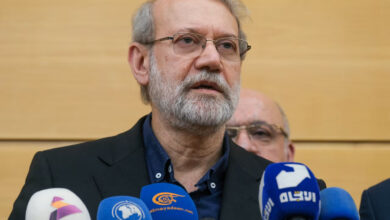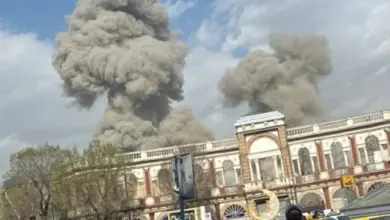Rafah/Gaza City – Hundreds of Gazans crossed into Egypt through the Rafah border point on Wednesday after the terminal re-opened following four days of suspended traffic. The closure stemmed from a technical, rather than political, dispute between Hamas and Egypt, officials said.
In a statement released by the Ministry of Interior, Hamas officer at Rafah, Ayyoub Abu Sha'ar, said the crossing resumed two-way movement after the two sides reached consensus.
"The Ministry of Interior will be announcing the names of people who are allowed to move day by day," the statement added.
Those who departed on Wednesday were originally scheduled to leave last week. Not all those who registered days ago were permitted to cross, however.
Following Egypt’s initial closure on Saturday, the first such move since authorities permanently opened the border a week prior, Hamas suspended the work at the crossing from Sunday to Tuesday, protesting what they said was sluggish work by Egyptian personnel.
As a result, the number of people wishing to leave Gaza has accumulated significantly in recent days and many Gazans on Wednesday were outraged when denied entry into the Hamas-controlled departure hall.
Hamas officials say Egypt pledged to let 550 passengers leave Gaza daily. They also agreed to keep the crossing operating from 9:00 am to 5:00 pm under the new agreement.
Restrictions on males between the ages of 18 and 40 remain in place, while other Gazans seeking to cross will require security clearance.
Under the new agreement, Egypt will explain the reasons behind exit denials, according to Hamas officials. Blacklisted Gazans, dating back to the era of former Egyptian President Hosni Mubarak, remain the central point of conflict between Hamas and Egypt.
Foreign Minister in the Hamas government in Gaza, Mohammad Awad, however, told Al-Masry Al-Youm that the number of Palestinians who managed to pass to Egypt on Wednesday was 450, while the remaining 100 had to go back to Gaza. The Egyptian government, according to Awad, said the reason was due to mere technical issues.
"They said that they don't have enough staff members," Awad said.
Even if 550 had successfully departed on Wednesday, the impact of the four-day closure would have still taken its toll on many other people who were supposed, or had hoped, to leave during that time.
Awad said Egyptian authorities should increase the number of permitted passengers because there are some people who need to leave urgently; otherwise they will miss their university semesters and hospital appointments or their visas will expire. These situations constitute the majority of people seeking to exit Gaza.
But some Gazans doubt the transparency of the process designed to determine who is allowed to leave.
After Khaled Abu Jazar applied to Hamas authorities to travel, he received the booking number 419, but he still wasn’t allowed to leave on Wednesday. He said, however, the holder of number 512 was given priority by Hamas to travel.
"I guess everything is going here according to favoritism," said Khaled, who wants to travel for medical treatment.
Hamas officials have often blamed the Egyptian side for delays, but some, like Zuhair Ashour, a passenger who could not reach the Egyptian side of Rafah, blamed the Palestinian side for the slow work.
"I do admit that the Palestinian police on the border are not qualified enough to run the crossing,” Ashour said. “Our problem is not with the Egyptian side, it's totally with the Palestinian one."
Responding to accusations that Hamas uses poor mechanisms for registration and awarding travel permission, FM Awad placed the blame on his Egyptian counterparts, claiming these problems could be solved when Egyptian authorities increase their staff size.
On Saturday, Egypt closed Rafah for maintenance work, officials said. Hamas officials criticized Egypt’s failure to notify them ahead of time while some Gazans stormed the gates of the terminal in outrage. During Hamas’s subsequent three-day closure, Egypt rejected a request to let 700 passengers leave Gaza daily, according to sources.
"I can't say that Egypt hasn’t implemented its promises to open the border permanently,” said Awad. “It met so many of the promises while the others are in their way to be met."
When Egypt opened the crossing last week, it said all women and men over 40 and under 18 can travel freely, without completing necessary advance procedures.
Hamas praised the decision as a big step in breaking Israeli restrictions that include the blockade of the coastal enclave. In 2007, after Hamas seized control of Gaza, Israel imposed the widely-criticized siege. Mubarak, a stalwart supporter of Hamas’ traditional rival Fatah, cooperated with Israel and kept the crossing heavily restricted.
In June 2010, Mubarak opened the crossing on regular basis, but traveling conditions remained difficult.




